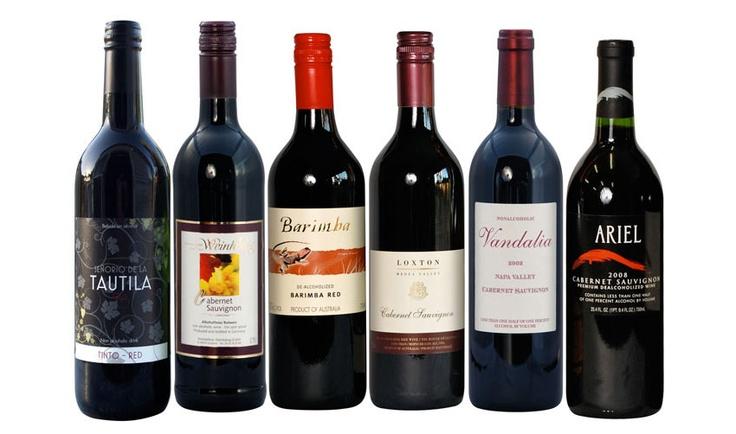In recent years, there has been a significant shift in consumer preferences toward healthier and more mindful lifestyles. Among the most prominent changes is the rising demand for non-alcoholic beverages. This growing trend has given birth to a new kind of retail space—the non-alcoholic shop. These specialty stores cater to a wide range of customers who want the social experience and complex flavors of alcoholic drinks without the negative health effects. From non-alcoholic wines and beers to alcohol-free spirits and wellness tonics, non-alcoholic shops are redefining how people approach drinking.
Why People Are Choosing Non-Alcoholic Options
Several factors are driving the popularity of non-alcoholic shops. First and foremost is the increasing awareness of health and wellness. Consumers are becoming more conscious of what they put into their bodies. Alcohol, often associated with hangovers, liver damage, and poor sleep, is being reconsidered by many.
Additionally, the rise of the sober curious movement has led people to explore a lifestyle that doesn’t revolve around alcohol. This doesn’t necessarily mean abstaining completely but making intentional choices about when and why to drink. Non-alcoholic shops provide a solution by offering beverages that are delicious, refined, and complex—without the alcohol content.
What You’ll Find in a Non-Alcoholic Shop
Walking into a well-curated non-alcoholic shop is like entering a boutique full of innovation. These stores stock a variety of beverages to suit different tastes and occasions:
-
Non-Alcoholic Wines: These are made from traditional wine grapes, then carefully dealcoholized. The result is a product that retains the aroma and mouthfeel of wine without the alcohol. Popular varieties include non-alcoholic Merlot, Chardonnay, and sparkling rosés.
-
Alcohol-Free Beers: With advancements in brewing technology, many alcohol-free beers now taste remarkably close to their alcoholic counterparts. From crisp lagers to hoppy IPAs, there’s something for every beer lover.
-
Zero-Proof Spirits: These are crafted to replicate gin, rum, whiskey, and other spirits. Mixologists and casual drinkers alike use them to create complex mocktails and non-alcoholic versions of classic cocktails.
-
Adaptogenic and Botanical Tonics: These wellness-focused drinks contain ingredients like ashwagandha, ginseng, and hibiscus. They are designed not only to taste good but to support mood, focus, and relaxation.
-
Ready-to-Drink Mocktails: Perfect for convenience, these pre-mixed drinks are ideal for parties, picnics, or a relaxing evening at home.
Target Audience: Who Shops Here?
The customer base for non-alcoholic shops is more diverse than many people think. It's not limited to individuals who are completely sober. It includes:
-
Health-conscious individuals looking to reduce their alcohol intake.
-
Pregnant women who want to enjoy wine or cocktails safely.
-
Designated drivers attending social events.
-
Fitness enthusiasts who want to avoid the negative effects of alcohol on performance and recovery.
-
People in recovery who want to enjoy social rituals without risking sobriety.
-
Cultural or religious abstainers who don’t drink alcohol due to beliefs or traditions.
In essence, non-alcoholic shops serve anyone who wants to enjoy sophisticated drinks without the downsides.
Benefits of Shopping at a Non-Alcoholic Store
One of the biggest benefits of shopping at a non-alcoholic shop is the specialized knowledge offered by staff. These retailers are passionate about their products and often provide tastings, pairings, and cocktail recipes.
Another advantage is the wide variety of choices. Mainstream grocery stores often have a limited selection of non-alcoholic drinks. A dedicated shop, on the other hand, carries a carefully selected inventory from leading brands and small-batch producers.
Moreover, many non-alcoholic shops also operate online, offering nationwide delivery, subscription boxes, and virtual tasting events, making it easier than ever to explore this growing world of beverages.
Sustainability and Ethical Practices
Many non-alcoholic shops are also committed to sustainability and ethical sourcing. Since the market is relatively new and driven by conscious consumers, many brands focus on using organic ingredients, eco-friendly packaging, and responsible production methods.
This focus on sustainability makes the non-alcoholic shop not only a healthier choice but also a more environmentally responsible one. Consumers can feel good knowing that they are supporting companies that care about their impact on the planet.
Non-Alcoholic Shops and Social Life
One of the most powerful contributions of non-alcoholic shops is how they reshape social dynamics. Drinking is often associated with celebration and connection, and for many, opting out of alcohol has felt socially isolating. Non-alcoholic shops help bridge this gap by providing options that look, feel, and taste celebratory.
Hosting a dinner party? Bring a bottle of non-alcoholic sparkling rosé. Going to a barbecue? Pack a cooler with craft alcohol-free beers. These products allow people to participate fully in social rituals without compromising their health or values.
The Future of Non-Alcoholic Retail
The non-alcoholic beverage market is projected to grow substantially over the next decade. As more people explore alcohol-free lifestyles, we can expect to see a surge in the number of non-alcoholic shops, pop-up tasting events, and curated experiences like sober speakeasies.
Technology and innovation will also continue to enhance product quality. Already, some alcohol-free wines and spirits are winning blind taste tests and international awards. With more research and investment, the line between traditional and non-alcoholic drinks will blur even further.
Conclusion
A non-alcoholic shop is more than just a place to buy drinks—it’s a hub for a modern lifestyle that prioritizes health, mindfulness, and inclusion. It reflects a cultural shift toward more intentional consumption, where people want to enjoy life’s pleasures without its pitfalls.
Whether you're sober, sober curious, or just looking for a delicious and unique drink, a visit to a non-alcoholic shop can open your eyes—and your palate—to a refreshing world of possibilities.









Share this page with your family and friends.